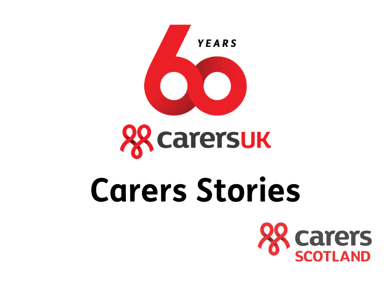What's an Adult Carer Support Plan?
An Adult Carer Support Plan (ACSP) is an opportunity to discuss with the local council what support or services you need.
This will look at how caring affects your life, including your physical, mental and emotional needs, and whether you are able or willing to carry on caring.
If you are a young carer under 18 (or aged 18 but still at school) this is called a young carer statement.
Any carer who appears to have a need for support should be offered this. You will be entitled regardless of the amount or type of care you provide, your financial means or your level of need for support. You don’t necessarily have to live with the person you are looking after or be caring full-time. You may be juggling work and care and this is having a big impact on your life.
You can have an Adult Carers Support Plan whether or not the person you are looking after has had a needs assessment, or if the local council have decided they are not eligible for support.
If you are a parent carer of a child under 18, you may be offered a combined assessment of both your needs. However, you can request a separate Adult Carers Support Plan as well. Young carers who are helping to care for a sibling should be offered a separate Young Carers Statement.
If you are sharing caring responsibilities with another person, or more than one person, including a child under 18, you can each have an Adult Carers Support Plan. For a child under 18 the assessment will be different. Find out more about what to do if you are a carer of children under 18.
You should be offered a Carer Support Plan by the local council adult work department of the person you are looking after. If you are a young carer, the local council that you live in should offer you a Young Carer Statement. If you have not been offered one, you should contact them by phone, in writing or on-line, and ask for an Adult Carer Support Plan If you want to, you can ask for an Adult Carer Support Plan before you take up your caring role.
In some areas, local organisations may be asked to carry out the Plan, but arrangements should still be made through your local council and they should explain who will carry this out. Your Adult Carer Support Plan should be done in person. The local council may initially start the process over the phone or online but this is only if you agree. Your local council may carry out a supported self-assessment. This could involve you filling in a self- assessment questionnaire, and then being contacted by the local council to discuss what you have written on the form.
Your Adult Carer Support Plan should be carried out in a convenient and private place, usually at your home or at a council office. It is your choice about whether the person you are looking after is present or not. If it helps, you can have a family member, a friend or a Carers Support Worker from a carers organisation with you.
Your plan should cover the following things:
- About you - information about you including your personal circumstances and the nature and extent of care you provide or intend to provide. This could also include things like childcare responsibilities, finances, paid work or education.
- Your wellbeing - the impact of caring on your wellbeing and day to day life
- Your health - including any physical, mental or emotional issues
- Your feelings and choices about caring – whether or not you are willing and able to provide care.
- Planning for emergencies - helping you put in place, if you wish, a plan for arrangements for the care of the person you care for in the event of an emergency. Find out more about emergency planning at here
- Planning for the future - if appropriate, information about planning for the future care of the person you care for
- Your goals - helping you identify and detail your “personal outcomes”. This is about what could improve your life and help you have a life alongside caring e.g. paid work, study, training, leisure, relationships and social activities.
Your needs – what support do you need to help you in your caring role. You should be asked about these issues, but if not you can raise them yourself. The aim of the Adult Carer Support Plan is to help you get the support that you need. So it’s best to give your honest opinion about your caring role, the care you provide and your feelings about being a carer.
Following your assessment, to be able to receive services and/or direct payments from the local council, you will need to meet the local eligibility criteria and therefore have what the law calls ‘eligible needs’. Generally speaking, you will meet the eligibility criteria if there is (or is likely to be) a significant impact on your health and wellbeing or ability to continue to provide care. It may be that you have eligible needs in one part of your life e.g. there is a significant risk of you losing paid employment but other parts of your life are not as significantly affected by your caring role.
If the local council decides that your needs do not meet the threshold where they have a duty to meet them, they should still do something. This could include:
- providing you with advice and information or referring you to your local carers information service
- helping you to claim any benefits to which you might be entitled.
- helping you put in place an emergency plan
- signposting you to local support, for example, your local carers centre or other local community, leisure or health services that could assist you
- discussing whether the person you care for might benefit from a community care assessment if they do not already have one.
If the local council decides that you do have eligible needs, then providing you want them to, they have a legal obligation to meet these needs and must draw up a support plan detailing how these needs will be met.
It may be agreed that the best way to help you as a carer is by providing services directly to you, by providing services to the person you are looking after, or a combination of both.
The local council can provide services themselves, or arrange services through another organisation. Alternatively, you can request direct payments, which are payments which enable you to buy services to meet your eligible needs or can be offered an individual budget where you identify the support you wish and the council arranges to pay for it. For more information you can look at the Self Directed Support Scotland website which provides information for you and the person you care for.
The local council cannot charge you for any support you receive as a carer. This includes replacement care for the person you care for to enable you to have a break from caring. For more information on breaks from caring visit the Shared Care Scotland website.
The support plan must include:
-
- details of the needs identified in the assessment
- which needs meet the eligibility criteria
- which needs the local council is going to meet, and how
- the outcomes that you want to achieve
- information about the personal budget available (the amount of money that the local council has worked out it will cost to arrange the necessary support for you)
- information about direct payments
- information and advice to support you in your role as a carer and address your needs
- details of your emergency plan, if you have chosen to make one.
Some examples of the kind of help that could be available directly to you as a carer:
-
- information and advice
- help to claim any benefits to which you are entitled
- a break from caring
- referral to carer support groups
- counselling or one to one support
- relaxation therapies
- stress management
- carer training courses
- leisure activities like walking groups, swimming, singing or art
- technology to support you, such as a mobile phone, computer where it is not possible to access computer services elsewhere
- help with housework or gardening
Here are some examples of the kind of help that could be available to the person you are looking after, in order to help you as a carer:
-
- changes to their home to make it more suitable
- equipment such as a hoist or grab rail
- a care worker to help provide personal care at home
- a temporary stay in residential care or a short break somewhere else
- meals delivered to their home
- a place at a day centre
- assistance with travel, for example to get to a day centre
- laundry services
- replacement care so you can have a break.
Latest updates

60th Anniversary Stories: In Praise of Young Carers – Pearls (Poem)

Carers Scotland 60th Anniversary Reception and Exhibition

Government confirms benefit increases for 2026-27, including rise in Carer’s Allowance and earnings threshold
Got a question about caring?
Every day we hear from people who need help with looking after a friend or family member
Become a member for free
Joining Carers UK is free and takes just a few minutes.



